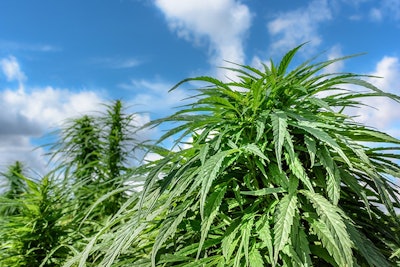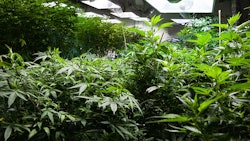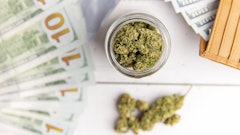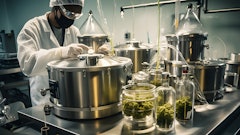

Crystal Oliver is committed to sustainable farming practices and protecting outdoor cannabis cultivation.
The co-founder of Washington’s Finest Cannabis, a sungrown operation in Eastern Washington, was recently appointed the executive director of The Washington Sungrowers Industry Association (WSIA), a membership-based nonprofit organization that aims to support sungrown cannabis by encouraging environmental and economic sustainability through advocacy, education and research. Oliver is also a member of Cannabis Business Times’ editorial advisory board and the 2019 Cannabis Conference advisory board.
Here, Oliver discusses this new role and how it will help her and the organization support environmentally conscious agricultural practices while ensuring that outdoor cannabis farms continue to thrive.
Cannabis Business Times: Can you provide some background on WSIA? What are its goals, and how has it been active in the state?
Crystal Oliver: Washington Sungrown Industry Association was established in 2014, and they’ve been pretty active at the legislative and regulatory level during that time period. It was founded by Jeremy Moberg, who is the president of Cannasol Farms. His advocacy is actually one of the main reasons why we have sungrown cannabis in Washington State because initially, they were going to limit cultivation to strictly indoor operations, and Jeremy went to great lengths to educate the WSLCB [Washington State Liquor and Cannabis Board] on the benefits of sungrown cannabis. As a result of his advocacy, they did allow sungrown cannabis as well as indoor cannabis in Washington.
CBT: Can you briefly describe your background and what led you to this role with WSIA?
CO: Over the last six years, I’ve been pretty active in advocating for small, independent cannabis farmers in Washington, and a lot of my advocacy has had an emphasis on protecting opportunities for cannabis farmers in rural Washington, which does often mean outdoor farmers. Some of the work that I’ve done in the past is serving on several regulatory work groups, including the Spokane Clean Air Agency work group, the State Building Code Council work group, the Washington State Liquor and Cannabis Board advisory council, as well as the Spokane County Voluntary Stewardship work group. I’ve been very active on the regulatory front up to this point and really encouraging regulators and policymakers to protect those opportunities for small and independent operators, as well as outdoor cannabis farmers. This really is a very good fit for myself, as well as the organization. I think it really fits into my evolution as an advocate for cannabis farmers in Washington, and it’s a really good fit for my passion, experience and interests to work for a really good organization.
CBT: What is your overall vision for the organization?
CO: Certainly, we’re going to focus on increasing farmer education through the organization, as well as helping to really emphasize and advertise our members and their commitment to regenerative ag practices, as well as environmentally conscious business practices. We’ll continue to really focus on our legislative and regulatory policy reform goals. This year, we do have a paid lobbyist in Olympia, so we should be able to get some good movement there, as well.
CBT: Can you outline a few of your policy goals?
CO: We’re looking to continue protecting and encouraging outdoor cultivation, as well as advocating for additional revenue to be given to local municipalities who’ve embraced cultivation in their areas. Then also lessening the regulatory burden for outdoor farmers and increasing the equitable treatment of outdoor farmers.
CBT: Can you outline some of the challenges outdoor farmers face in Washington?
CO: We still have issues with a number of municipalities that have instituted bans or moratoriums on cultivation in general. In Yakima County specifically, we have about 40 farmers, the vast majority, who are outdoor farmers [and] who have been operating in defiance of the ban there, and now it looks like the municipality is going to start taking more aggressive action to push those farmers out.
CBT: Why is it so important to protect outdoor growers’ futures?
CO: In listening and reviewing some of the recent testimony that we’re hearing from some of the larger corporations, like Canopy Growth, before the Canadian Senate, they’re coming out strongly against outdoor cultivation. I think there are a lot of reasons why they’re pushing for indoor cultivation. I think that provides them a pretty hefty competitive advantage and certainly decreases the number of competitors they’ll have. The only reason why cannabis was cultivated indoors at such a large scale was because of prohibition—that’s what forced it indoors. I think now that we’re seeing the end of prohibition, we should see the return of this plant to being cultivated outdoors.
Outdoor cultivation is the more sustainable option than indoor. It generates a lot less waste. It creates jobs in rural Washington, and it also decreases the cost of entry into the industry, so it makes participation in the industry accessible to more people. I really believe that it’s important that we preserve plants’ and people’s connection to the soil and to the earth and to the climate. If we force cultivation indoors despite the environmental impact, I think over the long run, we’ll have done significant harm to the environment as well as the plant and the number of genetics that we have available. The sustainability piece of outdoor cultivation is really important to us an organization.
Top Image: © styf | Adobe Stock

























